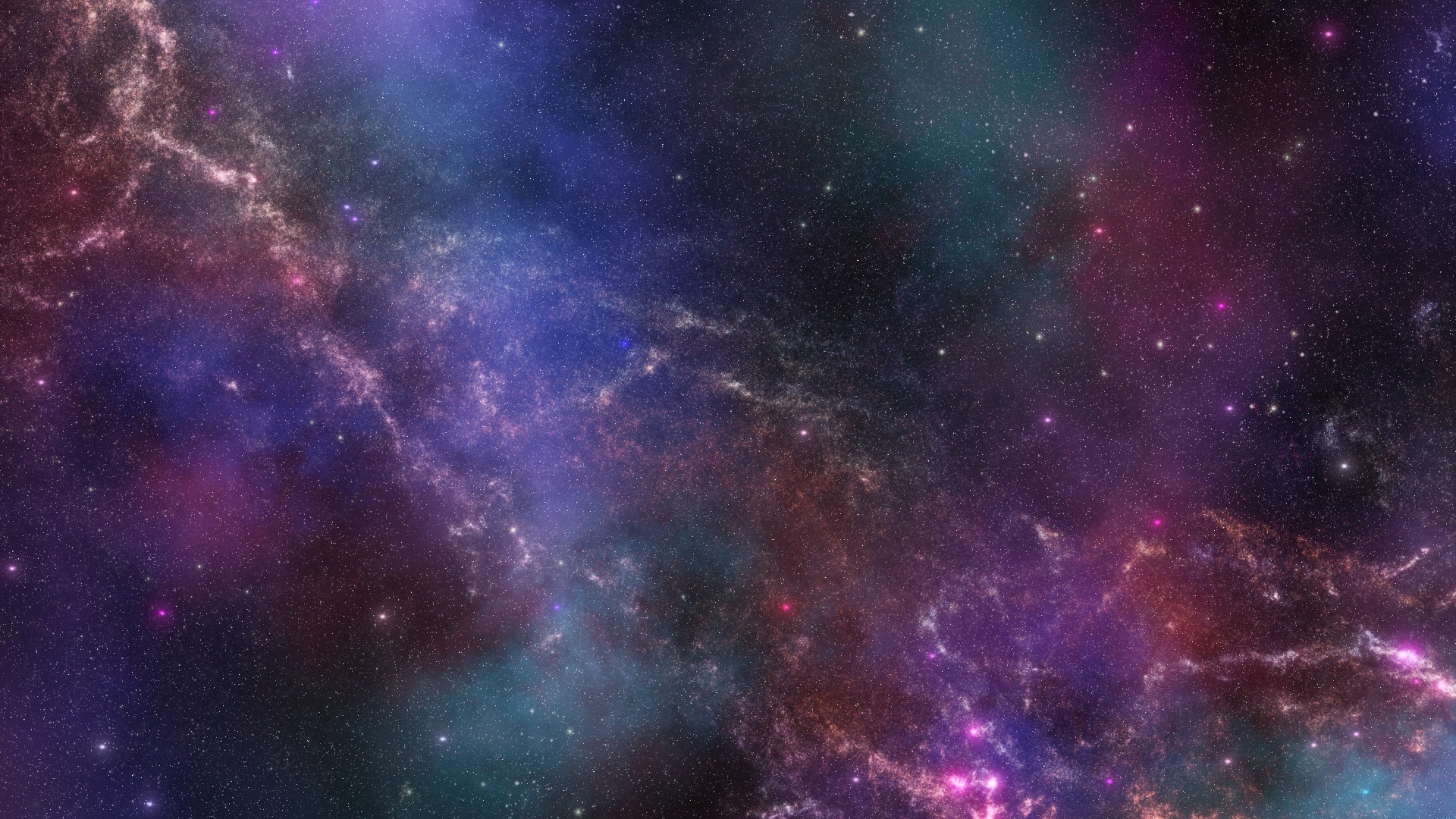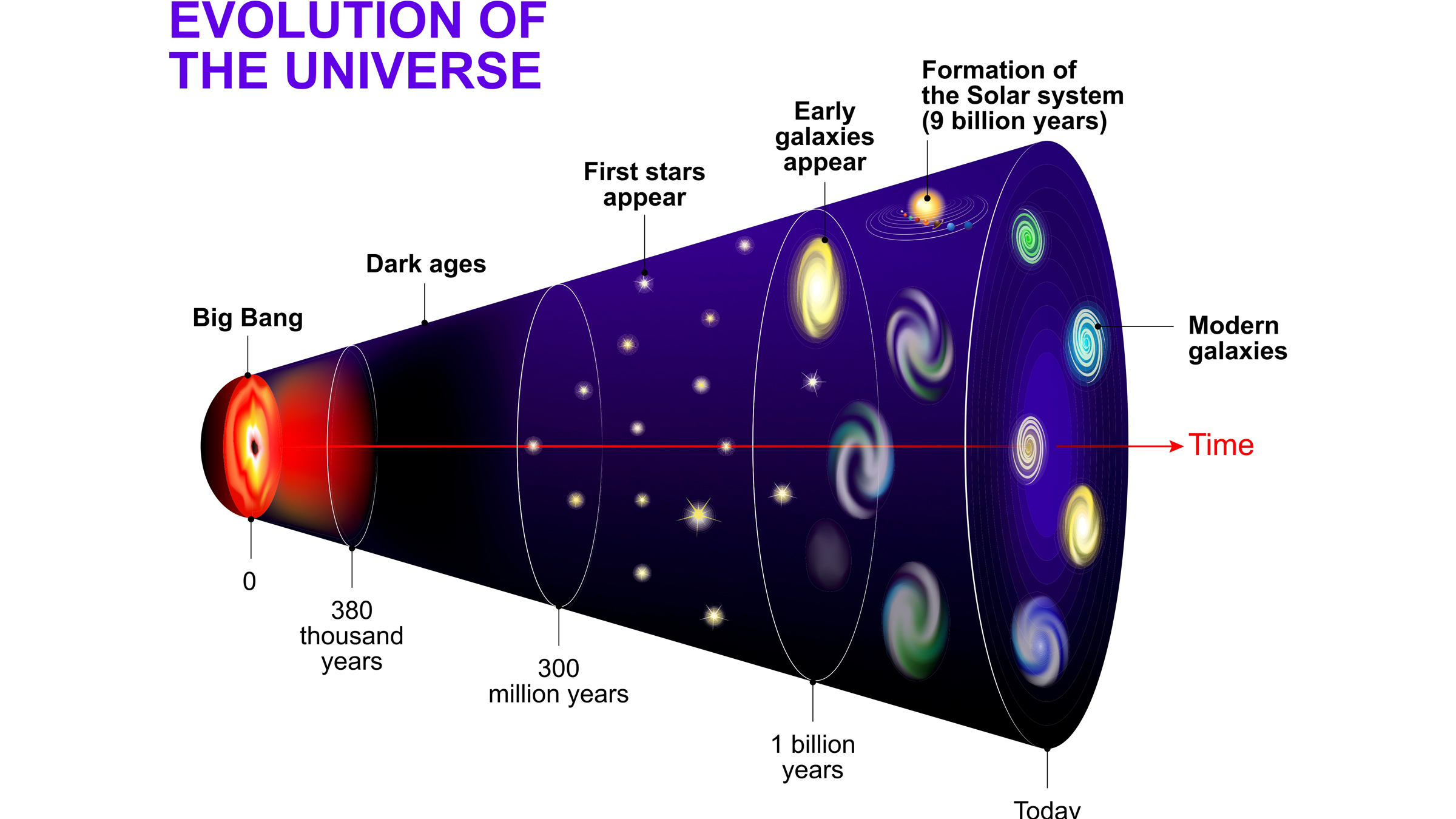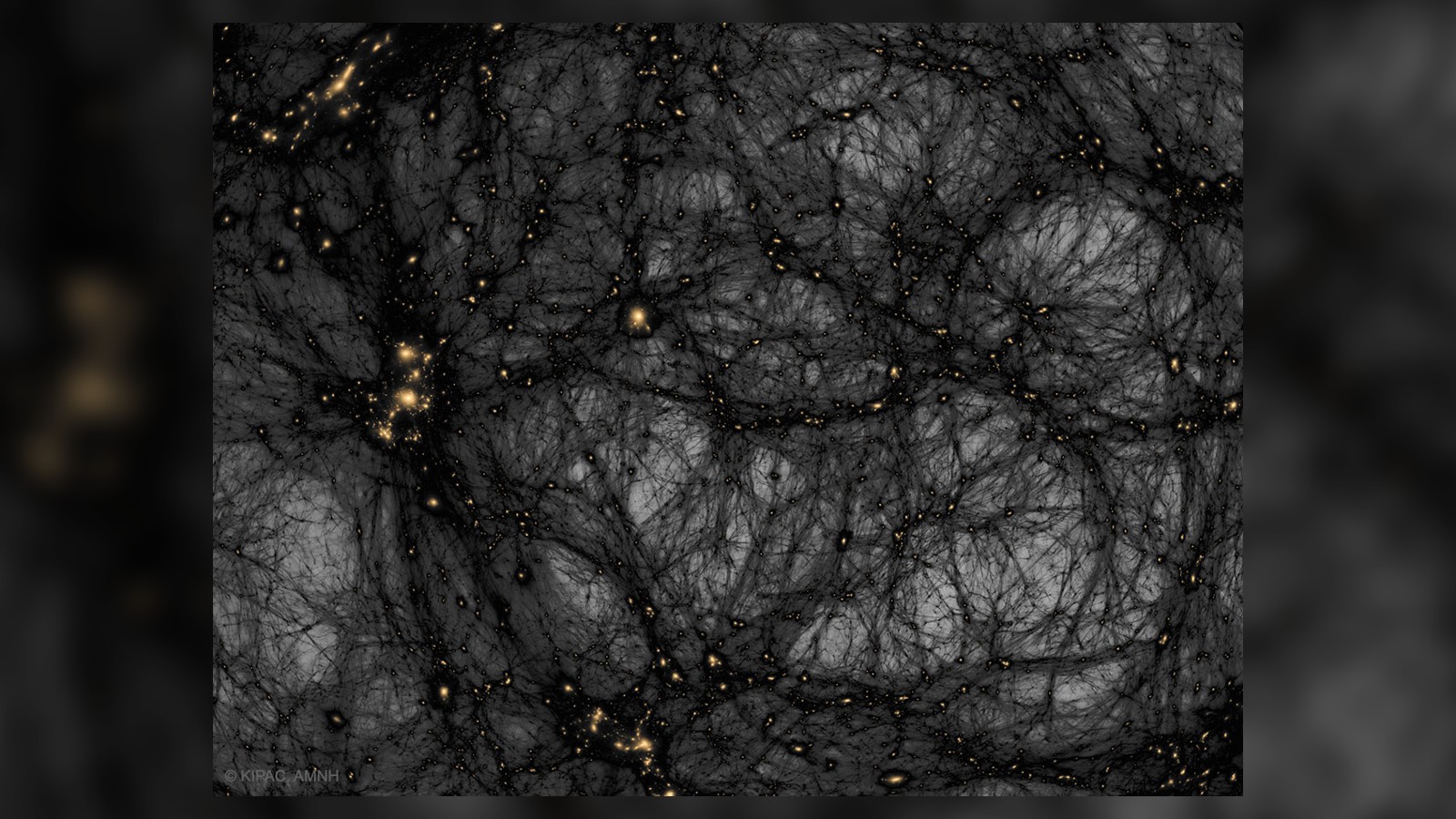What is the universe?
It encompasses everything that ever was and ever will be.

The universe is literally everything, the sum of all existence. It includes all matter, like stars and galaxies. The universe also includes all radiation and all other forms of energy. No matter where or when you exist, you are a part of the universe, as is everything you experience. There is nothing outside the universe, because anything that exists is automatically included in the definition of the universe.
How old is the universe, and is it expanding?
Our best understanding of the history of the universe comes from the Big Bang theory. Observations of distant galaxies reveal that all galaxies are, on average, moving away from every other galaxy. Astronomers interpret this motion to mean that the universe itself is expanding; on the very largest scales, the distances between galaxies grow with time. This means that in the past, the universe was smaller, hotter and denser than it is today.
Einstein's theory of general relativity allows cosmologists to connect the contents of the universe to its expansion history and, from there, calculate its age. According to current estimates, based on a wide variety of observations — such as distant supernovas, the cosmic microwave background and the abundance of light elements — the universe is approximately 13.787 billion years old. In its earliest moments, the entire universe was compressed into an infinitely tiny point known as the singularity. From that singularity, space expanded, giving rise to the universe that we see today, according to NASA.
How was the universe created?

Scientists do not know what came before the Big Bang. However, they do know that the singularity is not real; instead, it's an artifact of general relativity that occurs when the equations break down and lose their ability to describe a physical situation. A true explanation for the singularity must lie in a theory of quantum gravity, which is a physical theory of strong gravity at extremely tiny scales. Physicists do not currently have such a theory, but they do have several candidates, like string theory and loop quantum gravity.
Scientists don't even know if the question "What came before the Big Bang?" makes sense. Our understanding of the passage of time comes from the same theory of relativity that breaks down when describing the early universe. It could very well be that our conceptions of "before" and "after" are inadequate to describe what happens at such extreme scales, according to astrophysicist Ethan Siegel.
Ultimately, the reason the universe exists is perhaps the greatest of all philosophical questions.
What is the observable universe?
Astronomers currently do not know how large the universe is, but there is a limit to what we can see. This volume is known as the observable universe.
Get the world’s most fascinating discoveries delivered straight to your inbox.
Because the universe has a finite age, and because the propagation of light is limited to a maximum speed, only a certain portion of the universe has been illuminated from our vantage point. The observable universe is a sphere roughly 42 billion light-years across. (For scale, the Milky Way is only 100,000 light-years across, and the nearest star to the sun is less than 4 light-years away.)
The galaxies that astronomers observe at the very edge of this sphere released their light up to 13 billion years ago. However, the universe is expanding faster than the speed of light, which is not an issue, because special relativity dictates that the restriction that objects can't travel faster than the speed of light applies only measurements made nearby an observer, not to objects in the distant universe.
If the universe were static, then as time progressed, we would be able to observe even more distant galaxies as their light eventually reached us. However, the expansion of the universe is carrying away those more distant galaxies faster than the light from them can travel back to us, and we will never be able to observe them, PBS' Nova reported.
Is the universe infinite?
Cosmologists think that beyond the edge of the observable universe lies… more universe: more stars, more galaxies, more planets, more everything. Because it's unobservable, however, astronomers do not know how large the entire universe is. It's possible that the universe is truly infinite, with no boundary in space at all, according to NASA.
However, one size estimate comes from the theory of inflation, an event many cosmologists think occurred during the earliest moments of the Big Bang. During inflation, the universe rapidly swelled to many orders of magnitude larger in a tiny fraction of a second. Inflation theory puts the minimum size of the universe at around 10^62 times wider in diameter than the observable universe.
What is the universe made of?

Most of the contents of the universe are of a form currently unknown to modern physics. Around 68% of the total energy in the universe is composed of dark energy, a hypothetical form of energy that appears to reside in the vacuum of space-time itself. However, physicists do not know where this energy originates from or why it has the strength it does, according to Harvard University's Universe Forum.
About 27% of the matter and energy of the universe is composed of dark matter, which is believed to be an invisible form of matter that does not interact with light. While the vast majority of physicists think dark matter is some new kind of fundamental particle (or particles), they have not yet directly detected it.
The remaining 5% of the universe consists of normal, familiar matter, like stars, planets and vast gas clouds.
How will the universe end?
To understand how the universe will end, we must first accurately measure its contents. Since the main component of the universe is dark energy, that will dictate its future evolution. The main effect of dark energy is that it is accelerating the expansion of the universe. So the universe is not only getting larger every day but getting larger faster and faster every day. Assuming that dark energy will remain unchanged (which is a big assumption, because we currently do not understand the nature of dark energy), then this accelerated expansion will eventually drive almost every galaxy out of our observable sphere, astrophysicist Kevin Pimbblet wrote in The Conversation.
Hundreds of billions of years from now, almost every galaxy will become invisible to us. Eventually, the Milky Way will run out of fresh gas to create new stars. Trillions of years from now, the last stars will extinguish, leaving behind a thin soup of fundamental particles that will slowly cool to a temperature of absolute zero.
Additional resources
- To sink your teeth into cosmology, check out "Your Place in the Universe" (Prometheus, 2018), written by article author and astrophysicist Paul M. Sutter.
- Explore the ultimate fate of the universe in this great video from PBS Space Time.
- See how calculating the size of the universe is no small feat in this episode of the "Astronomy Cast" podcast.
Bibliography
Brennan, P. (2020, December 3). What is the universe? NASA. https://exoplanets.nasa.gov/what-is-an-exoplanet/what-is-the-universe/
Halpern, P. (2012, October 10). How large is the observable universe? PBS NOVA. https://www.pbs.org/wgbh/nova/article/how-large-is-the-observable-universe/
NASA. (2010, April 16). What is the inflation theory? https://wmap.gsfc.nasa.gov/universe/bb_cosmo_infl.html#:~:text=The%20Inflation%20Theory%20proposes%20a,relatively%20gradually%20throughout%20its%20history
Pimbblet, K. (2015, September 3). The fate of the universe: heat death, Big Rip or cosmic consciousness? The Conversation. https://theconversation.com/the-fate-of-the-universe-heat-death-big-rip-or-cosmic-consciousness-46157
Siegel, E. (2022, March 4). Ask Ethan: Did our universe really arise from nothing? Big Think. https://bigthink.com/starts-with-a-bang/universe-nothing/

Paul M. Sutter is a research professor in astrophysics at SUNY Stony Brook University and the Flatiron Institute in New York City. He regularly appears on TV and podcasts, including "Ask a Spaceman." He is the author of two books, "Your Place in the Universe" and "How to Die in Space," and is a regular contributor to Space.com, Live Science, and more. Paul received his PhD in Physics from the University of Illinois at Urbana-Champaign in 2011, and spent three years at the Paris Institute of Astrophysics, followed by a research fellowship in Trieste, Italy.


